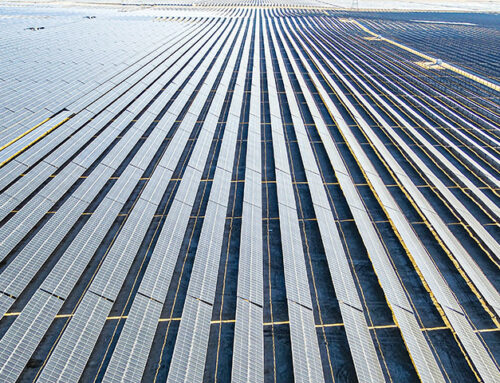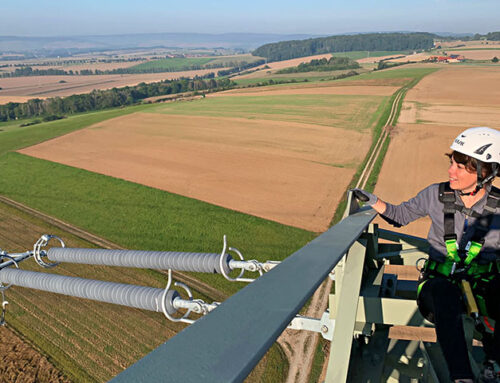Municipal Infrastructure Projects in Georgia
Sustainable Water Supply
Georgia has long since ceased to be an insider tip for tourists. Spectacular natural landscapes, ancient history, great wine, famous Georgian cuisine, extremely hospitable and creative people – all of which leads increasing numbers of hikers and travelers from all over the world to choose this country in the Caucasus as their vacation destination. But there are also aspects that impair not only tourism but, above all, environmental protection and the quality of life for the population, namely the aging and, in some cases, lacking municipal infrastructure for water supply and wastewater treatment.
We set out to tackle these challenges in 2022 and are assisting the state-owned water utility United Water Supply Company of Georgia (UWSCG) with investment and modernization measures in four Georgian cities. The relevant funding is being provided by the German Federal Ministry for Economic Cooperation and Development (BMZ) through the German development bank KfW as well as from Georgia’s own state budget.
Georgia and Municipal Infrastructure
Georgia is located between West Asia and Europe and is sometimes called the “Balcony of Europe”. Standing on this balcony, you can see magnificent landscapes between Black Sea coasts and 5,000 m-high mountains of the Caucasus. The country has been independent since 1991 and is striving to join the EU. In the infrastructure sector, however, much still dates from the time of the Soviet Union. On site, you will usually see outdated equipment and aging technology, often kept running by the most basic repair measures. There is a considerable need for optimization and investment to ensure the supply of utilities to the population in future.
Moving Away from Old Standards Towards a New Way of Doing Things
The former Soviet regulations and standards are old, but are part of the reality experienced on a daily basis. Abandoning them is a lengthy process. Until recently, water was considered common property, i.e. freely available at no charge or at least very cheap. There have been numerous ongoing investments, as there has been a lack of investment in new infrastructure for a considerable period. Fichtner’s assignment is thus not only to technically implement modern water supply and wastewater disposal systems, but also to take people along on this journey and persuade them of the value of a good water infrastructure.



Comprehensive Plans to Improve Infrastructure
A feasibility study was conducted to identify extensive infrastructure improvement measures in the project towns of Baghdati, Vani and Samtredia in the Imereti region. Fichtner’s consulting services include planning the measures, tendering, construction supervision and support during the warranty period, as well as commissioning and staff training in the fields of water supply, stormwater and wastewater. The aim is to improve municipal services for the population and thus also strengthen the regional tourism sector. Special attention is being paid to the aspects of environmental protection, energy efficiency, sustainability, effectiveness and efficiency.
Technical Data
A Wide Range of Accompanying Measures
Parallel to the technical tasks, the initial situation of the client and future operator of the new infrastructure was examined in order to define the necessary accompanying measures. UWSCG is a fully state-owned company and is responsible for water supply and wastewater disposal in large parts of the country, including the Imereti region. There is a wide range of accompanying measures aimed, among other things, at reducing non-technical water losses, such as faulty or completely absent meter reading, but also water theft. In addition, these measures are intended to optimize internal organizational processes, improve sales, customer service and IT systems, intensify public relations work, and support UWSCG’s management and staff in other technical and commercial aspects. The accompanying measures are planned not only for Imereti, but also for Kazbegi County in the Mtskheta-Mtianeti region.
Starting in 2022, with Completion Expected in 2029
The project scope is truly within the core business areas of Fichtner’s services, but the task is extremely complex. It encompasses multiple disciplines, requires the integration of extensive technical know-how, needs a particularly sensitive consulting approach, has an ambitious schedule from the very beginning, and also involves a team being formed and managed across cultures and languages. At the same time, this means that Fichtner can contribute its particular strengths in interdisciplinary and intercultural work. To do so, we are deploying a large team of over 60 local and international experts on site in Georgia.
Modern Technology at Work
A large-scale survey had to be carried out at short notice as a basis for drawing up the detailed designs. With the help of a total of four fixed-wing drones, an area of about 80 km2 was surveyed within three weeks, thus eliminating the need for a time-consuming terrestrial investigation.
FMC and FWT in Action
Although the project is still at an early stage, it is clear how important interdisciplinary cooperation is – in our case between Fichtner Water & Transportation (FWT) and Fichtner Management Consulting (FMC). While FMC with its focus on management and economic consulting takes care of the accompanying measures, FWT is mainly responsible for the planning and supervision of the technical solutions that are to be implemented. As an engineering company for infrastructure projects, FWT not only ensures that the entire project runs smoothly, but also takes into account environmental and social aspects as well as health & safety issues.
July 2023

Dr. Maria Klawitter
Manager in the field of strategy and economics
at Fichtner Management Consulting AG

Jan von Vogt
Regional Director in the Urban Water Management/Waste Division
at Fichtner Water & Transportation GmbH





